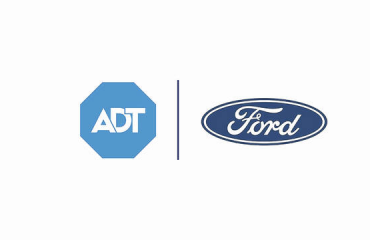Small business can't afford Congress' anti-tech legislation – San Mateo Daily Journal
Please log in, or sign up for a new account to continue reading.
Thank you for visiting the Daily Journal. We hope that you continue to enjoy our free content.
To continue, please log in, or sign up for a new account.
We offer one free story view per month. If you register for an account, you will get two additional story views. After those three total views, we ask that you support us with a subscription.
A subscription to our digital content is so much more than just access to our valuable content. It means you’re helping to support a local community institution that has, from its very start, supported the betterment of our society. Thank you very much!
Please purchase an Enhanced Subscription to continue reading.
Your current subscription does not provide access to this content.
Access to all our award winning content
Commenting capabilities
Access to our daily e-edition
The good feeling of supporting real, local news in your community
Access to all our award winning content (does not include e-edition)
Commenting capabilities
The good feeling of supporting real, local news in your community
Sorry, no promotional deals were found matching that code.
Promotional Rates were found for your code.
Sorry, an error occurred.
do not remove
Partly cloudy skies. High near 65F. Winds light and variable..
Clear skies. Low 41F. Winds light and variable.
Updated: February 7, 2022 @ 6:09 am
Rosanne Foust
Amy Buckmaster
Amid COVID restrictions and reduced foot traffic, many San Mateo County businesses are using technology to find new ways to build awareness and to serve customers. Unfortunately, a new set of congressional antitrust legislation, if approved, seeks to break up the same online tools that have provided a lifeline for local businesses, risking our region’s economic recovery from the pandemic.
Amy Buckmaster
In this package of antitrust bills, Congress proposes to force tech companies of a certain size to sell off key business lines and to prevent them from promoting or bundling products and services on their own platforms. It’s also important to note that these restrictions target American-based businesses, and not foreign companies.
Rosanne Foust
Although the proposed legislation is aimed at a select group of tech companies, consumers, small businesses and entrepreneurs will bear the brunt of these ill-conceived bills. Large online platforms provide bundled services to users because these platforms operate several business lines that can be easily integrated. Currently, these platforms coordinate and manage email, calendars, documents and video at no cost to users. The antitrust bills under consideration would put free services at risk and eliminate integrations that help businesses attract and serve customers.
So, what would the impact of these bad bills look like for San Mateo County businesses? Consider the impact to the “Choose Local San Mateo County” app that was launched last year. This mobile application is a collaboration between local government and the private sector to help shoppers support more than 370 community businesses. Customers use the app to identify local businesses, connect to their website, find directions to their stores and to link helpful information to their account profiles. It’s a tool that brings customers and businesses together. However, if the antitrust legislation were to pass, many of these combined features would be broken up and lost. Instead, shoppers would be forced to haphazardly scour the internet, hoping to find the information they need. Local businesses hope that they could be found amidst all of the noise online.
San Mateo County businesses are also uniquely vulnerable to the potential impact of these antitrust bills because most of our local firms are small. According to recent U.S. Census data, small firms make up the overwhelming majority of businesses in the county. Firms with fewer than five employees account for more than half of all San Mateo County businesses, and those with fewer than 100 employees total 97% of all businesses. Many of these businesses are immigrant, minority or female-owned. Small businesses often rely on the low-cost or free online services provided by larger tech companies, including free shipping, bundled services and greater selection of products.
As we emerge from the pandemic, our community needs a swift and equitable economic recovery. The proposed bills, if approved, would hamper this effort. Historically, antitrust law has always focused on protecting consumers. This legislation intends to shift that focus toward business competition. Consumer protection, including access to and costs for services, should remain the goal of antitrust law. We also understand and appreciate the need to ensure a fair playing field within our markets. However, Congress is ill-advised to preemptively assume that certain companies are “guilty until proven innocent.” Government agencies already exist that can root out inappropriate business conduct where it occurs, while preserving digital tools for companies that rightly operate with a presumption of innocence.
Local San Mateo County businesses have been resilient and innovative in addressing COVID-19’s challenges. They’ve harnessed technology in new ways to communicate and engage in commerce with customers and serve their needs. The package of congressional antitrust bills would break up and scatter the digital tools our local employers need to survive.
San Mateo County businesses, workers and families can’t afford this ill-conceived legislation. Members of Congress should reject these antitrust bills.
Amy Buckmaster is the president and CEO of Chamber San Mateo County. Rosanne Foust is the president and CEO of the San Mateo County Economic Development Association, SAMCEDA.




